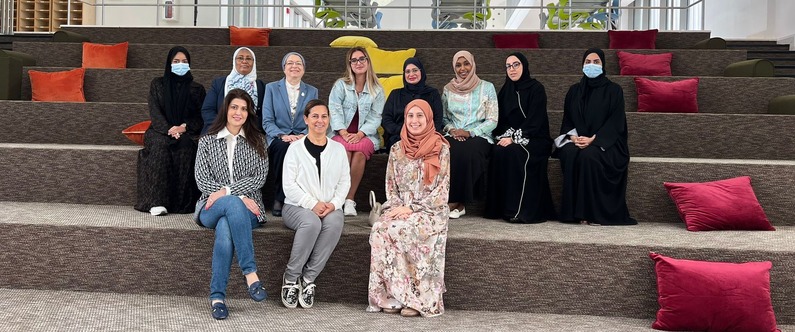WCM-Q course enhances emotional intelligence
 Course directors and participants at the session.
Course directors and participants at the session.
Weill Cornell Medicine-Qatar (WCM-Q) recently hosted a two-day course to promote emotional intelligence (EI) skills and the power of EI to create a healthy, equitable, and compassionate social and work environment, ultimately leading to improved patient outcomes.
This continuing professional development (CPD) course has been provided by WCM-Q’s Institute for Population Health (IPH) since 2017. Titled ‘Mastering Emotional Intelligence,’ the course aims to enable health professionals to define emotions, intelligence, and EI; describe EI as an ability-based skill; recognize the impact of EI on healthcare; identify the four core skills of EI; discuss EI strategies; and set up EI goals and action plans.
The course is designed for physicians, nurses, dentists, pharmacists, allied health professionals, educators, researchers, and administrators.
Course directors and speakers included Maha Elnashar, director of the Center for Cultural Competence in Healthcare (CCCHC) at IPH, and Huda Abdelrahim, senior specialist in cultural competence.
Ms. Elnashar said: “Our emotions impact our behavior and greatly influence the entire healthcare journey and destination. The good news is that emotional intelligence can be developed and enhanced through continuous training. Equipping healthcare professionals with essential EI skills enables them to develop personal, social, management, and leadership skills that enhance their performance and positively impact patient satisfaction and health outcomes.”
Ms. Abdelrahim said: “Through EI training, health professionals learn how to utilize their self-awareness, self-management, social awareness, and relationship management skills to navigate situations constructively, thereby improving empathy and quality of care.”
Dr. Sohaila Cheema, associate professor of clinical population health sciences and assistant dean at IPH, said: “Emotions impact our everyday activities, learning processes, decision-making, relationships, behavior, and above all, our health and wellbeing. Healthcare providers who possess strong emotional intelligence skills can establish more effective communication with their patients, improve the overall healthcare experience, and ensure the best possible patient outcomes.”
Dr. Ravinder Mamtani, WCM-Q professor of population health sciences and vice dean for population health and lifestyle medicine, and professor of medicine at the Center for Global Health, said: “We are committed to offering need-based innovative and relevant educational programs. By focusing on ways to improve a health professional’s emotional intelligence, we are essentially equipping them with the necessary tools to view their feelings critically and objectively and to react positively.”
In Qatar, WCM-Q is accredited as a provider of continuing medical education by the Department of Healthcare Professions (DHP) of the Ministry of Public Health (MoPH) and is accredited internationally by the Accreditation Council for Continuing Medical Education (ACCME).